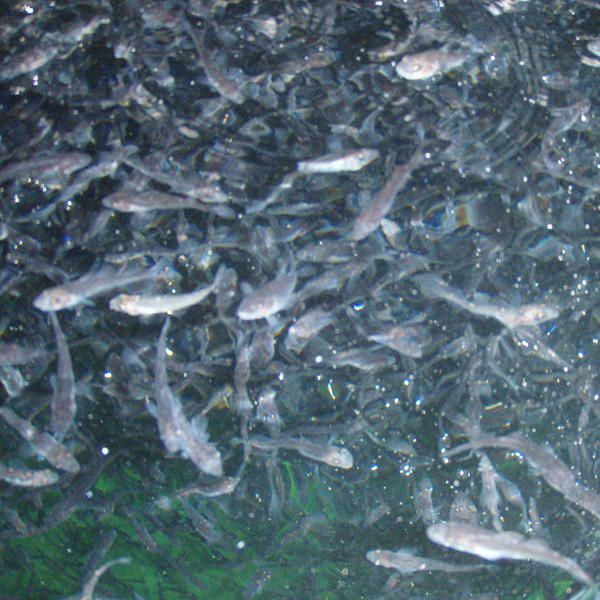Aquaculture Biology
- Years2 Years
- ECTS credits120
Main content
Introduction
Objectives and content
Aquaculture Biology is a specialization in the Master's Programme in Biology
The goal of the Aquaculture Biology specialization is to give a theoretical basis and practical experience for understanding the biological principles in aquatic food production. Aquaculture is a diverse discipline, covering topics such as molecular biology, chemistry, nutrition, as well and the biology, physiology, and behaviour of fish.
The practical work of aquaculture takes place in the laboratory, the hatchery, or the fish farm. The courses in this specialization provide an insight into the role of aquaculture in global food production, and the knowledge and skills needed for its further development. The student research project can be undertaken in a commercial setting or at a research institution. The research question may be focused on a fundamental biological process, or be designed to test and refine production techniques or instrumentation.
The specialization is intended to give a solid background for students who wish to work in aquaculture or related industries, or to pursue further research.
What you Learn
Learning Outcomes
On completion of the Aquaculture Biology study specialization, students will be able to:
Knowledge
- Understand of the role of aquaculture for global commerce, health, and food security
- Understand the biology of relevant aquaculture species, and explain the different life history stages and their requirements in aquaculture
- Understand the biological basis (molecular, endrocrinological, cellular, nutrition) for the control of growth and development of aquaculture species
- Discuss the balance between requirements for environmental quality, ethics, legal governance, and the requirements of commercial production in aquaculture.
Skills
- Be familiar with relevant research questions in aquaculture biology
- Analyse growth patterns and explain the major aspects of the development in marine species
- Apply common aquaculture biology research methods for investigating growth, reproduction, and development
- Determine the causes of variations in development and growth rate
- Pursue an independent research task, in accordance with proper health and safety practice, including analysis of biological material, data collection, data analysis, and interpretation of results.
- Show proficiency in the main analytical methods used in the student's own research task, and be able to explain, discuss, and interpret other methods that may be included in that research task.
- Be able to retrieve, analyze and apply new knowledge within the field
General competences
- Be able to work in accord with scientific principles, and understand and respect openness, precision, accountability and the significance of distinguishing between knowledge and opinion.
- Discuss biological theories in relation to the biology of aquatic organisms in cultured conditions
- Present a scientific conclusion based on the analysis of student's own data, and in context with existing research results.
- Demonstrate knowledge and mastery of the literature and reference databases relevant to student's own work
- Work independently and as part of a team with comprehensive and demanding assignments, and to meet deadlines.
- Produce a formal oral and written presentation of student's own research results.
- Be able to discuss the student's research field in public discussions.
How to Apply
Semester
Autumn (main admission) & Spring (supplementary admission if not all spots are filled)
Admission Requirements
In order to apply for the Master Programme in Biology, you need a bachelor degree in biology or related field. You must hold a minimum of:
- 60 ECTS in biology
- 7,5 ECTS in chemistry that must include lab work
- 7,5 ECTS in statistics
- 7,5 ECTS in mathematics
Bachelor degrees from UiB that qualify:
- Bachelor degree in Biology,
- Bachelor degree in Sustainable Aquaculture,
- Bachelor degree in Environment and Resources (Natural Sciences specialisation, Biology track)
Bachelor degrees that qualify
Other bachelor degrees may qualify, if they include the required subjects listed above
You also need to document:
- Average grade of minimum C (equivalent to Norwegian grade C)
- Proficiency in English
